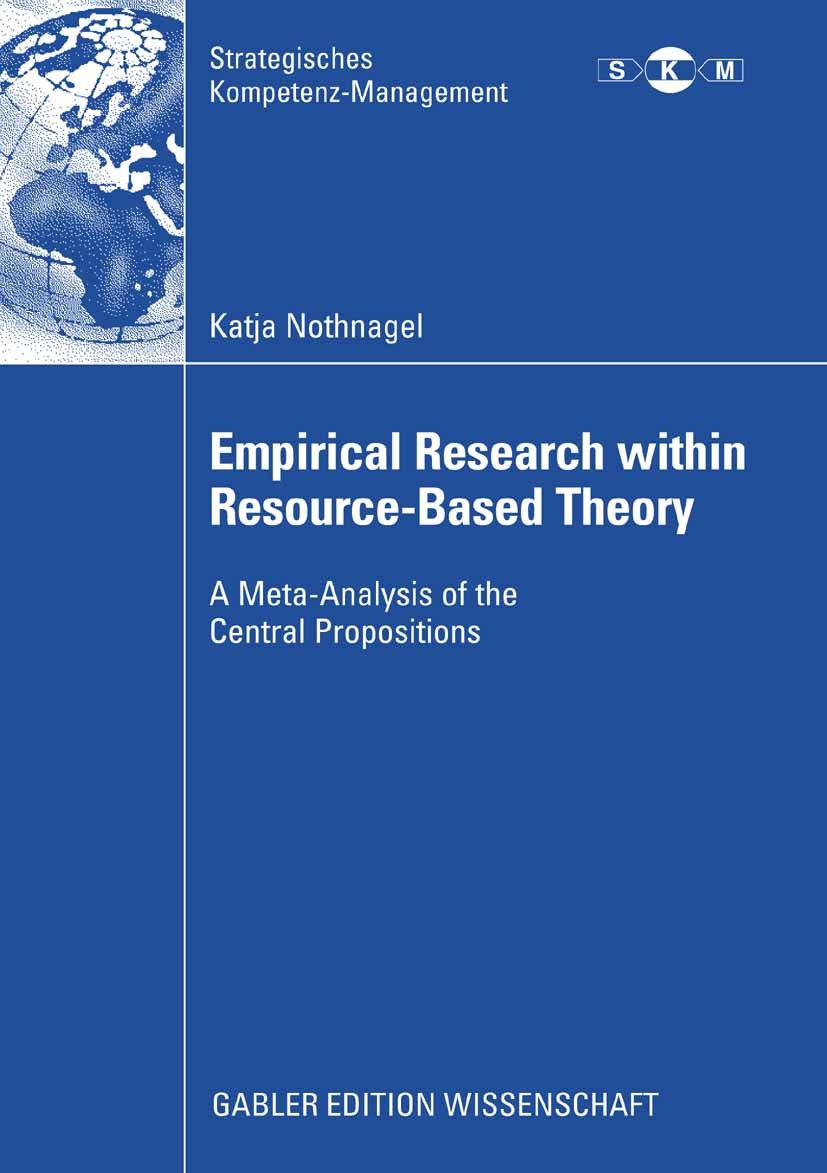| 书目名称 | Empirical Research within Resource-Based Theory | | 副标题 | A Meta-Analysis of t | | 编辑 | Katja Nothnagel | | 视频video | http://file.papertrans.cn/309/308881/308881.mp4 | | 丛书名称 | Strategisches Kompetenz-Management | | 图书封面 |  | | 描述 | In the last ten years, the Resource-Based View (RBV) has become an important theoretical approach in strategic management. Concurrently, or at least since the contribution of Priem/Butler, there has been an increase in criticism of the theoretical and empirical power of the RBV. In this context Katja Nothnagel identifies three main deficiencies in the present discussion on the RBV: 1. An inadequate understanding of the central constructs and the empirically revisable hypotheses of the RBV. 2. An insufficient comprehension regarding the state of the art of the empirical research on the RBV and therefore of the empirical power of the RBV. 3. An inadequate systematic in respect to the methodical problems and the evaluation of alternative methods of research. This is the starting point of Katja Nothnagel’s thesis, in that she aims to contribute to the elimination of all three deficiencies. Firstly, she concentrates on the ten most important theoretical publications on the RBV and thus identifies the three central constructs: resources, performance, and markets. These three central constructs are described in detail and defined. This represents an essential step in the establishment of | | 出版日期 | Book 2008 | | 关键词 | Resource conditions; Resource-based Theory; Strategische Ressourcen; Strategisches Management; Wettbewer | | 版次 | 1 | | doi | https://doi.org/10.1007/978-3-8349-9830-9 | | isbn_softcover | 978-3-8349-0921-3 | | isbn_ebook | 978-3-8349-9830-9 | | copyright | Gabler Verlag | Springer Fachmedien Wiesbaden GmbH, Wiesbaden 2008 |
The information of publication is updating

|
|
 |Archiver|手机版|小黑屋|
派博传思国际
( 京公网安备110108008328)
GMT+8, 2025-12-29 21:54
|Archiver|手机版|小黑屋|
派博传思国际
( 京公网安备110108008328)
GMT+8, 2025-12-29 21:54


